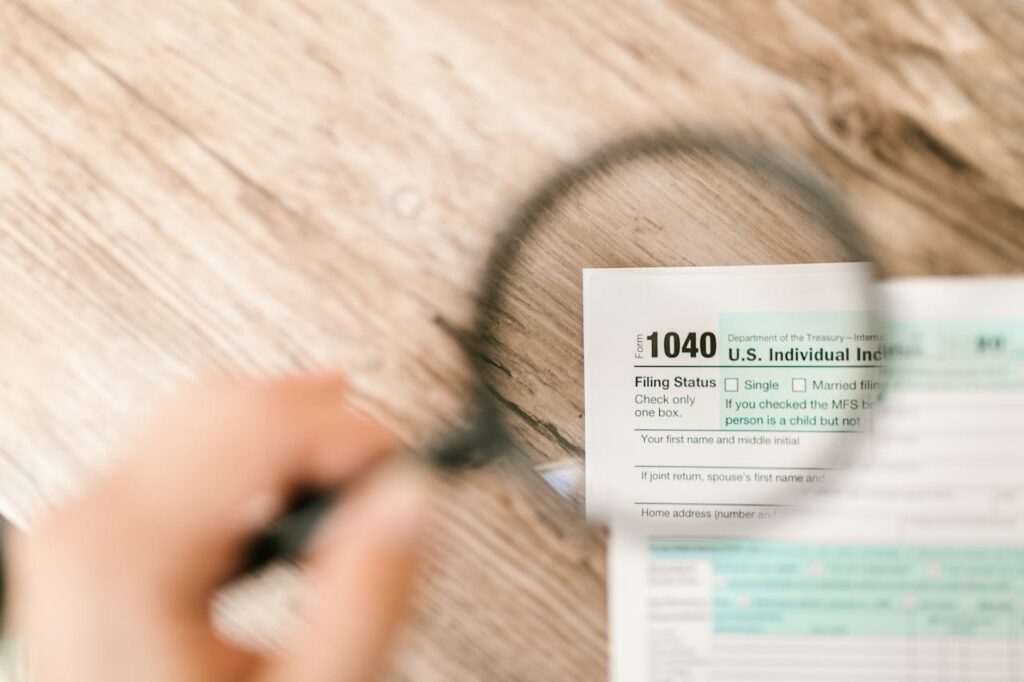Introduction
For U.S. citizens and Green Card holders, filing U.S. tax returns annually is a legal obligation, even if they live outside the country. Many taxpayers unknowingly fall behind due to confusion about the rules, only realizing their mistake years later.
If you’ve missed filing for several years, you may be wondering:
- Do I need to file U.S. taxes while living abroad?
- Will I face penalties for late filings?
- How do I catch up without triggering IRS scrutiny?
The IRS Streamlined Tax Amnesty Program offers a penalty-free way to become compliant. This guide explains how it works, who qualifies, and how you can use it to resolve your U.S. tax situation efficiently.
What Is the IRS Streamlined Tax Amnesty Program?
The IRS Streamlined Filing Compliance Procedures help U.S. taxpayers catch up on overdue tax returns and Foreign Bank Account Reports (FBARs) if they failed to file due to non-willful reasons.
This program is designed for:
- U.S. citizens and Green Card holders living abroad who never knew they had to file.
- Expats who stopped filing after moving overseas.
- Taxpayers who filed but missed key disclosures, such as foreign accounts or pensions.
- Individuals who received incorrect advice about their filing obligations.
Key Benefits of the Program:
- No penalties for late filings (including failure-to-file and FBAR penalties).
- Limited lookback period—only the last three years of tax returns and six years of FBARs are required.
- Avoids IRS audits or investigations if filed correctly.
- Allows taxpayers to claim U.S. tax benefits, such as the Foreign Earned Income Exclusion (FEIE) or Foreign Tax Credit (FTC).
Who Qualifies for the Streamlined Tax Amnesty Program?
To be eligible, you must meet all the following conditions:
- You are a U.S. citizen or Green Card holder.
- You have lived outside the U.S. for at least one of the last three years.
- You were unaware of your U.S. tax obligations (non-willful conduct).
- You have not been contacted by the IRS about non-compliance.
You may also qualify if you:
- Earn income from employment or self-employment abroad.
- Own a foreign business or hold non-U.S. investments.
- Have foreign financial accounts exceeding $10,000 at any time during the year.
If you currently reside in the U.S., you may still qualify under the Domestic Streamlined Program, provided your failure to file was unintentional.
What Does "Non-Willful Conduct" Mean?
To qualify, you must certify that your failure to file was non-willful, meaning you did not intentionally evade taxes.
Examples of non-willful conduct include:
- You never knew about U.S. tax obligations as an expat.
- A tax professional misinformed you about filing requirements.
- You thought filing was unnecessary because you paid foreign taxes.
To certify non-willful intent, taxpayers must submit IRS Form 14653 (for expats) or Form 14654 (for U.S. residents).
How the Streamlined Tax Amnesty Program Works
If eligible, you must:
- File the Last Three Years of U.S. Tax Returns
- Report worldwide income from all sources.
- Disclose foreign investments, pensions, and real estate income.
- Claim eligible expat tax benefits to avoid double taxation.
- File Six Years of FBARs (Foreign Bank Account Reports)
- Report all foreign accounts exceeding $10,000.
- FBARs are filed separately from tax returns using FinCEN Form 114.
- Submit IRS Certification of Non-Willfulness
- Provide a signed statement explaining your non-compliance.
- Certify that you are not deliberately avoiding taxes.
- Mail the Completed Package to the IRS
- Documents must be sent to the Streamlined Processing Center in Austin, Texas.
Required Documents for the Streamlined Procedure
To ensure compliance, you must prepare:
- Form 1040 – U.S. individual tax return for the last three years.
- Form 8938 – Foreign asset disclosure (if applicable).
- Form 3520/3520-A – Reporting of foreign trusts or gifts.
- Form 5471 – For those with foreign business ownership.
- Form 14653 or 14654 – Certification of non-willful conduct.
- FinCEN Form 114 (FBARs) for the last six years.
Final Thoughts: Why You Should Act Now
The IRS is increasing enforcement on non-compliant taxpayers. If you have unfiled tax returns or FBARs, now is the time to resolve your tax situation before the IRS contacts you first.
Key Takeaways:
- You only need to file three years of tax returns and six years of FBARs.
- No penalties will be applied under this program.
- You can still claim U.S. tax benefits, reducing or eliminating double taxation.
- Waiting too long could lead to IRS scrutiny, audits, or penalties.
Tax Partners – Your Trusted IRS Compliance Experts
At Tax Partners, we specialize in U.S. tax compliance, expat tax filings, and IRS amnesty programs. Our team of international tax professionals ensures:
- Accurate preparation of your tax returns and FBAR reports.
- Expert guidance through the Streamlined Filing Procedure.
- Legal protection and peace of mind while resolving IRS issues.
If you need assistance with IRS amnesty programs, foreign asset reporting, or catching up on taxes, our specialists can help.
This article is written for educational purposes.
Should you have any inquiries, please do not hesitate to contact us at (905) 836-8755, via email at [email protected], or by visiting our website at www.taxpartners.ca.
Tax Partners has been operational since 1981 and is recognized as one of the leading tax and accounting firms in North America. Contact us today for a FREE initial consultation appointment.


